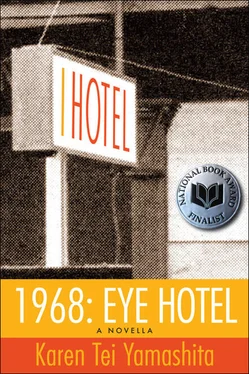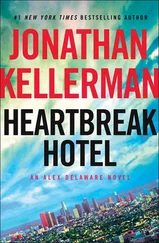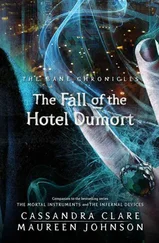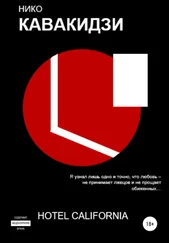“What’s that?” Paul turned around.
“High-school graduation suit.”
“Does it still fit?”
“You want professional, this is the best I can do.”
“Vintage.”
“Speaking of, where’d you get this car?”
“I bought it off Chen.”
“It wasn’t this color.”
“Right. I painted it.”
“Fucking Steve McQueen. Why do I need a suit? Leather will do.”
Paul laughed. “You watch too many movies.” Paul twirled the ’66 now-green Mustang GT out of the driveway, shot down 101 to pick up Kamiyama in Fresno, and they were on to L.A.
What happens next in L.A. at Dorothy Okada’s house is history. Her husband, the writer John Okada, had died only months before, and she had burned all his papers before moving. It wasn’t entirely her fault. No one seemed interested in his work or writing. Not UCLA. Not the Japanese American community. There was no affirmation of his work, and she had lived her own reality. Now these young men had driven four hundred miles of pure anticipation to her doorstep, and she could not fathom their disappointment. She did not know this desire to write and the cost of defining a belief and necessity in a time and place.
Paul looked at Jack in his high-school graduation suit. He looked like he was going to rip it off his body. Paul’s look said, Be professional or I’ll kill you. Jack was fuming, thinking that young chump Paul wasn’t even born when Okada’s book was published. But Kamiyama looked at Jack with a sansei look that said, Don’t make her feel bad. So Jack said, “Well, O.K., tell us about John. Ah, what sort of guy was he? I mean, what sort of sex life did you have together?”
Paul got right to work on the book projects. Maybe he did it because he was the youngest and didn’t know it was a shot in the dark. That’s another thing to take into consideration, the way things happen because you are young and don’t know any better. You might say it’s youthful idealism, but youth doesn’t really know what’s ideal. It just feels right sometimes.
Paul knew how to collect rent, write up contracts, keep accounting books, carry out a will. Maybe Jack or some other poet made the contacts, but Paul followed through, got the contracts signed, deposited and signed checks, printed letterhead, licked the stamps on the envelopes. He had learned from Edmund about press releases and advertising. It was business, on the one hand. On the other, he had learned something from editing Edmund’s memorial tape. It was like Chen had suggested. You tell a story. Pieces for the anthology arrived, along with interviews of the authors. A new introduction and afterword for the Okada reprint had to be written and proofed. Paul poured over the material and meticulously edited everything. He got the confidence to get Kamiyama to pull back on the nostalgia and to make Jack accept cutting out whole paragraphs of run-on blather. The whole operation looked professional, but it was just Paul, schlepping books to the post office in the back of the green Mustang.
You’ve got to wonder, too, about the role of teachers. The problem for Paul was that Chen had become more than a teacher. Sometimes you think the student wants to surpass or show up the teacher, but that wasn’t the case for Paul. He wanted to make Chen proud. He wanted to give back something significant in return. He was busy being a member of the poetry club, of course, but he thought this was part of delivering the goods, as it were. The edited book, some of it his own writing—he wanted to give that to Chen. Of course, he didn’t think about it in exactly this way until months later, so while he was busy being a singular worker in a staff of one, he failed to notice Chen’s malaise.
Chen went back and forth methodically to his teaching appointment. And for days he might disappear with a car to the races.
“Where’ve you been?”
“Racing.”
“I thought you said you were going to write this weekend.”
“I couldn’t.”
“You say that every weekend. What are you reading?” Paul picked up the scattered papers Chen had discarded on the carpet next to the sofa. He thought they might be student papers, but he recognized the typewriter and the style. “This is Edmund’s stuff.”
“There’s a box of it. Judy gave it all to me. For a long time I couldn’t look at it.” Chen rubbed his eyes. “This is the dissertation he started.”
Paul slumped into the sofa.
“It’s brilliant.”
“Can you publish some of it?”
“Maybe.” Chen shook his head sadly.
Paul tried to change the subject. “I found this artist in J-Town who does prints and silkscreens. He’s perfect to do the cover for No-No .”
“Such a loss.” Chen hadn’t heard Paul. He got up and walked to the large window of his study, the library where Paul and Edmund had spent so many hours reading together. Chen stared out, watching the fog slip into the bay. He didn’t hear Paul leave the room.
The next weekend, Paul ran into the emergency room of the Valley Memorial Hospital in Livermore. He found Chen with a bandaged head and broken arm, rushed there from the Altamont Raceway. “You wanna kill yourself?” he barked at Chen.
“This driver cut in front. We were lucky, you know. That’s skill.” Chen proudly hid his embarrassment.
Confined to the house, Chen sat next to Edmund’s box of writing and read and reread everything. He pulled out Edmund’s translations, made corrections, and had Paul type up new drafts.
“When are you going to get that cast off?” Paul asked.
“Maybe next week. If you don’t want to type for me, it can wait another week.” Chen looked frustrated, shuffling through papers with his left hand.
“I can do it.” Paul tapped a ream of papers on their bottom edge and said, “But I’ve got these transcripts to complete, then turn into bios. They want it all in a few weeks.”
Chen spoke to himself. “There are another fifteen poems in this series to translate. I’ll have to do that myself. But Edmund’s history seems complete.”
“Hey, want to hear this? This is Jack’s interview of Keye Luke.”
Chen looked up, but he hadn’t heard Paul. He muttered, “Then there are the footnotes.”
Paul got up to peruse a spread of photographs on the coffee table. He stared at a black-and-white photo of a Chinese man holding a pole balanced with two baskets filled with chickens. The man in the photo and those around him were wearing traditional jackets, slippers, and Western hats.
Chen glanced over and said, “Arnold Genthe. Took those in Chinatown before the earthquake. Tangrenbu: what they called Chinatown in those days. I’ve been collecting them. Thought there might be something we could use.”
Paul nodded and stared a long time at a second photo, of a little girl standing in front of similar baskets. Her Chinese jacket looked soiled, torn and shredded at the sleeves; her pajama pants were wide. Perhaps she had to carry those baskets on her back.
“In that drawer over there.” Chen pointed. “There may be another box of photos.”
Paul pulled out a large tin box and pried open the cover. It was filled with envelopes filled with photographs. He rummaged through and pulled out a large portrait of a young Chinese man and woman. The woman was wearing a simple gown and holding a small bouquet of flowers. The man was dressed in a tux. In the can there were other photos of the same woman, standing on the Golden Gate, sitting under a tree at a picnic, standing on what seemed to be the Stanford campus. She wore a short-sleeved sweater and pleated skirt. Her hair was bobbed, her bangs cut straight against her forehead. Paul had very little memory of his mother, but the small pounding in his chest told him that these images matched the ones he knew. He looked up at Chen, who was buried in Edmund’s text.
Читать дальше












